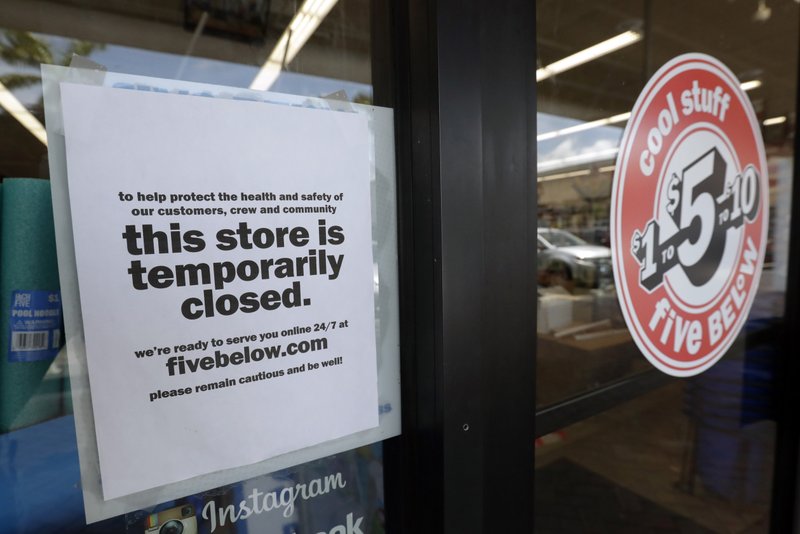Small businesses hoping for more leeway in using coronavirus loan money were disappointed as the government released instructions for seeking forgiveness for the loans.
Forms the Small Business Administration released late Friday didn’t address two concerns shared by many owners about the $659 billion Paycheck Protection Program. According to the instructions, loans can still be forgiven in full only if the money is spent within eight weeks of receiving it. And businesses must use at least 75% of it for workers’ pay, with the remaining amount limited to rent, mortgage interest and utility expenses.
Many small businesses say the eight-week period is too restrictive; loan forgiveness applies only for money spent through June 30. Those who already brought back laid-off workers are afraid they’ll have to let them go again if business hasn’t returned to pre-virus outbreak levels at the end of the eight weeks — a situation faced by restaurants and also companies whose customers have cut back their spending.
“Some of my staff might find themselves right back at unemployment if clients can’t pay for marketing and public relations services,” says Alissa Kelly, owner of PR Plus, based in Las Vegas. She had to lay off her five staffers, brought them back after she got her loan in April, and is worried about what happens when her eight weeks runs out June 17.
Many owners want the eight-week period to either be extended, or to start when laid-off staffers are rehired, not when businesses receive the money.
Other owners are worried about having to cut staffers’ pay.
“We brought people back to full pay, but I warned them that I can’t guarantee that we will be able to keep everyone at full hours,” says Leslie Saul, owner of an architecture and design firm that bears her name in Cambridge, Massachusetts.
The Paycheck Protection Program, part of the government’s trillion-dollar coronavirus relief package, has given out more than 4.4 million loans worth $544 billion as of late Friday. The loans have been given out in two rounds; in the first, the average loan was $206,000 and in the second, it is $70,622 as more money has gone to the smallest applicants.
Loan forgiveness was a key factor in many owners seeking the loans. They don’t want to have a debt burden, especially if their revenue is down, leaving them less money for loan payments. Many owners are also unhappy about the restrictions on how they can use the money. Restaurant owners, for example, say they need to use some of the money to buy food and other items to be able to reopen. While technically they can do that, they could not get forgiveness on the money spent for unapproved items. Some owners, fearing they won’t get forgiveness, have said they’re considering not using the money.
Treasury Secretary Steven Mnuchin has said officials are looking at a “technical fix” to address owners’ concerns.
The forms released Friday did clear up some matters. While the eight-week period runs from the day the loan money is disbursed, owners with biweekly payrolls can instead use the start of their pay period to get the clock running. And owners cannot be penalized if staffers refuse to return to work, a situation many employers are facing; many laid-off staffers have been reluctant to return to work for fear of contracting the coronoavirus or they prefer to remain on unemployment.
The SBA appeared to be leaving the other issues for Congress to decide. A $3 trillion coronavirus relief bill the Democratic-led House passed last week gives owners more time to rehire workers and more discretion over how to use the money. Although the bill is expected to die in the Republican-led Senate, Sen. Marco Rubio (R-Fla.), chairman of the Senate Committee on Small Business and Entrepreneurship, tweeted Sunday that he hopes Congress will change the requirement before the first loan recipients reach the end of their eight-week periods. That will happen in early June.
In not budging on the issue of how the money must be spent, the SBA also went against the findings of its own inspector general’s office, which said in a report earlier this month that the agency, not Congress, created the requirement that 75% of loan money must be used for employee pay.
(AP)











